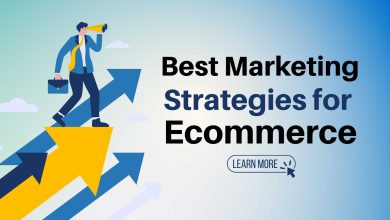What do I need to start an online business
Starting an online business has become an increasingly popular option for aspiring entrepreneurs. It offers flexibility and the potential for growth and scalability, all without the significant overhead costs of a physical storefront. However, starting an online business does require careful planning and execution to ensure that it is successful. In this essay, we will discuss the essential components needed to start an online business.
- A Solid Business Plan Before starting any business, it is crucial to have a well-thought-out plan. This plan should outline the business’s objectives, target audience, products or services, marketing strategies, and financial projections. A solid business plan helps to ensure that the business stays on track and can be modified as needed to achieve its goals.
- A Niche or Unique Selling Proposition In today’s highly competitive online marketplace, it is essential to have a unique selling proposition (USP) that sets your business apart from others. A USP can be anything that makes your business stand out, whether it’s a particular product or service, exceptional customer service, or a unique marketing approach. The key is to identify what sets your business apart from the competition and use that to your advantage.
- A Domain Name and Website Your website is the foundation of your online business, and having a professional-looking website is critical to success. To get started, you’ll need to purchase a domain name and choose a website builder or web development platform. A domain name should be easy to remember and relate to your business. Your website should also be easy to navigate and optimized for search engines to ensure that it appears high in search engine results pages (SERPs).
- A Secure and Reliable Web Hosting Service A web hosting service is a critical component of any online business. It’s essential to choose a web hosting service that is secure, reliable, and offers the features you need to run your website effectively. The web hosting service you choose should be able to handle the traffic and data associated with your website, and it should offer features like uptime guarantees, site backup and recovery, and 24/7 technical support.
- A Payment Gateway To sell products or services online, you’ll need a way to accept payments. A payment gateway is a software application that allows you to process credit card payments securely. Many payment gateway options are available, and the one you choose will depend on factors like cost, ease of integration with your website, and the types of payment methods you want to accept.
- Marketing Strategies Once your online business is up and running, it’s essential to have effective marketing strategies to drive traffic and sales. Some marketing strategies include search engine optimization (SEO), pay-per-click (PPC) advertising, social media marketing, email marketing, and content marketing. It’s important to identify which strategies will work best for your business and develop a marketing plan accordingly.
- Legal Compliance An online business must comply with the same legal requirements as a traditional business. This includes registering your business with the appropriate government agencies, obtaining necessary permits and licenses, and ensuring that your website’s terms of use and privacy policies are legally compliant. If you plan to sell products or services internationally, it’s also essential to understand the laws and regulations that apply to those countries.
- Time and Dedication Starting an online business requires time, dedication, and hard work. It’s essential to be prepared to devote significant time to your business, especially in the early stages. Success does not come overnight, and building a successful online business takes time and effort.



